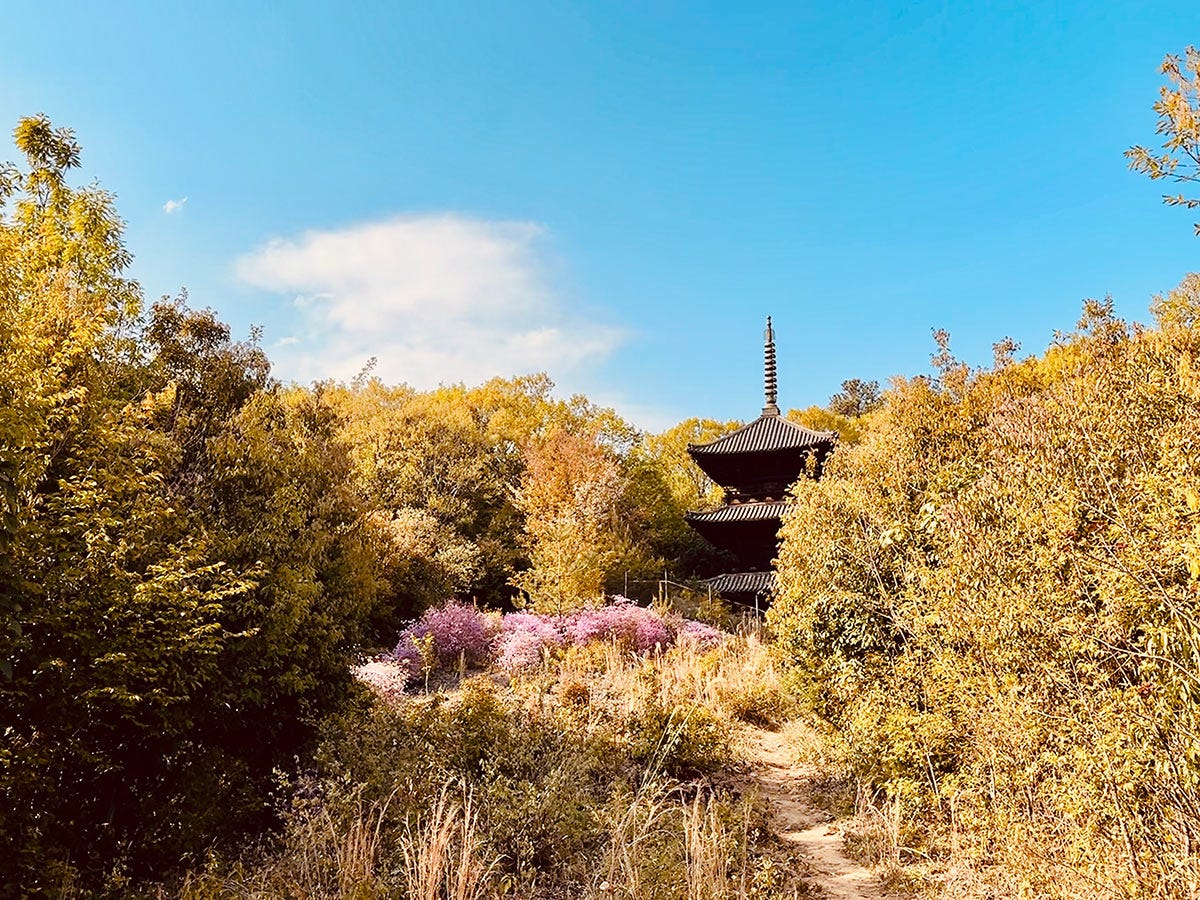Clues from a zen monastery
this is not the place, but somewhere is
As I ladle human excrement into a bucket, I realize I should have been more specific when I proclaimed that luxury is not satisfying.
Manually emptying a septic tank is a disgusting job, but oddly it's not that bad. The weather is nice and my work partner and I banter poop jokes as he wheelbarrows and dumps the buckets. I’ve had tougher mornings sorting office politics.
This isn't what I had in mind when I signed up to live at a zen monastery, but I wanted an authentic experience, and I guess this is it. Last I checked, shit ladling is not available on the Waking Up app.
I ended up here because it's Westerner-friendly and I wanted to visit a monastery while in Japan. However I learn that I have entered a graduate school for zen practitioners, and that there are few places more intense than Sogenji. It used to be that there were no visitors; in order to come train you had to commit to staying until you were enlightened. But the Rōshi, in his deep compassion for the suffering of the world, recently decided to open the place to visitors. This is how I, someone with no zen experience and a flimsy fair-weather meditation practice, was permitted to join.
On a light day there's four hours of zazen (zen meditation), and that's intense, but the true intensity is keeping up with the unending choreography of being at the right place doing the right thing at the right time. You wake up at 3:30am, put on as much clothes as possible to keep from freezing, do an hour of chanting (mostly in Japanese), then a few hours of zazen. Then comes breakfast, which might sound like a break but is possibly the most intense as it involves attempting to follow the intricate procedure of chanting and offerings and passing dishes and bowing and cleaning bowls with tea and a pickle. Then there's outdoor grounds maintenance and indoor cleaning, a small break, and then the real work begins, which it being spring is often weeding. Then there’s a small break before lunch (more pickles, more chanting), a break, and then possibly more work. Then an optional dinner and at 5 or 6pm back to meditating and chanting. You're typically done at 9:30pm, but that goes later if it's a period of more meditation.
As someone new to zen, Japanese culture, monastic life, manual labor, ceremony, and sleep deprivation... it was overwhelming. In the end it really was too much for me, but there was so much that I loved.
I loved:
living in a purpose-driven community
being offline, outside in nature, and active for much of the day
getting up early and having long, full days
meditating for many hours each day
living sustainably—producing little waste
eating healthy vegetarian meals together with people
doing one thing at a time fully, with my whole attention
connecting with the people there and over the days discovering each's wisdom, depth, and excellence
So much of it was so good; I so wanted to make it work. However there’s not much slack in the schedule if you miss sleep or need to spend time processing, and after a few weeks I realized the pace wasn’t sustainable for me. Coming back to everyday reality has been hard (as I described here), but now I have the clues to what I’m looking for.
If you can recommend any Buddhist monasteries or communities that have a more relaxed schedule, let me know. I'll keep on the Dharma Bum World Tour 'til I find a fit. :)



Plum Village centres are pretty relaxed as zen monasteries go, in Bordeux you can ask to volunteer in order to stay longer, it would have to be by personal request if its your first time going ;; i love your loves list and it resonates with my exp! ive wondered on and off how to replicate these in a layperson context e.g. via living in a mindful group house
That first sentence is golden.
Runner-up: "Last I checked, shit ladling is not available on the Waking Up app."